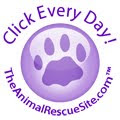~Vegan Adventurer

Veganism (pronounced VEE-gun-ism) may be defined as a way of living which seeks to exclude, as far as possible and practical, all forms of exploitation of, and cruelty to, animals for food, clothing or any other purpose. In dietary terms it refers to the practice of dispensing with all animal produce-....including meat, fish, poultry, eggs, animal milks, honey, and their derivatives. In terms of clothing, the wearing of such items as leather, suede, wool, fur etc. would not be acceptable.

Animals raised for human consumption and use suffer tremendously in today’s factory farms and the person who chooses a vegan diet demonstrates a concern for the pain animals endure. Farmed animals are bred, fed, confined, and drugged to lay more eggs, birth more offspring, and die with more meat on their bones at the expense of their health, wellbeing and social development.
The belief that eating eggs or drinking milk doesn’t kill animals is false. Commercially-....raised dairy cows and egg laying chickens, whether “free range” or factory-....farmed, are slaughtered when their production rates decrease. The factory farm methods that are used to produce most meats are also used to produce eggs and milk. The animals are seen not as individuals, sentient beings with unique physical and psychological needs but as a means to an end- eggs, milk, meat, leather, and so on.

The question is not, can they reason?
Nor can they talk? But can they suffer?
Jeremy Bentham
Sentient Beings
Chickens are very interesting animals. They are thought to be as intelligent as cats, and dogs. They have cultural knowledge that is passed down from generation to generation and they learn from watching each other.
Pigs are insightful and curious and are thought to have intelligence beyond that of a 3 year-old human child. They are even smarter than dogs! Pigs are extremely friendly, loyal, and affectionate animals.
Cows are intelligent creatures who enjoy solving problems. Cows have been known to do some amazing things such as walking 7 miles to be reunited with a calf after being sold at auction, leaping over a 6-foot fence to escape a slaughterhouse,...... and swimming across a river to their freedom.
Turkeys are playful birds who enjoy being social and being in the company of others. They love having their feathers stroked and like to chirp, cluck, and gobble. They have tons of character and are very aware of their surroundings.
Animal Agriculture
Agribusiness considers farm animals products and tools of production, rather than as living, feeling animals. This attitude has resulted in the commodification...... of sentient beings and the prevalence of animal cruelty on industrialized factory farms. The statements below prove this attitude. Click here to read more about Factory Farming.
Free Range
The United States Department of Agriculture, which regulates free-range products for labeling purposes, relies upon the producer's word that the farm animals are indeed free range. A farmer could therefore label a product "free-range" when in fact it is not. Moreover, there are very few requirements for labeling products "free range." For instance, birds raised for meat may be called "free-range" if they have some sort of access to the outdoors, regardless of how much space each individual animal has. Free-range farm hens are unable to lay enough eggs to be considered profitable after one or two years. They are then typically sold to slaughterhouses...... or live-poultry markets. As on factory farms, free range, male chicks are considered worthless: at birth, they are dumped into trash cans and suffocated, ground up alive, or sold to laboratories. And like factory farm animals, when free range animals are no longer productive, in other words, when they are no longer profitable, they are killed.

Humans do not need to eat meat, dairy, or eggs; all of our dietary needs can easily be met with an animal-free diet. People who consume animal products are more susceptible to cancer, stroke, obesity, appendicitis, osteoporosis, arthritis, diabetes, and food poisoning. Vegan diets, on the other hand, tend to be high in fiber and low in fat and cholesterol. On average, vegetarians live seven years longer than meat-eaters. 80 to 90% of all cancers, cardiovascular diseases, and other degenerative illnesses can be prevented, at least until very old age, with a plant-based diet.

Vegetarian diets are associated with a reduced risk
for obesity, coronary artery disease, hypertension,
diabetes mellitus, colorectal cancer, lung cancer,
and kidney disease.
American Dietary Association
Cancer
Humans that eat meat are 40% more likely to get cancer than those that don’t eat meat.
95% of human exposure to dioxin, a probable cause of cancer and other health risks, comes through meat, fish and dairy consumption.
The rate of colon cancer is highest in regions where meat consumption is higher.
The EPA estimates that fish can accumulate up to nine million times the level of cancer-causing polychlorinated...... biphenals found in the water in which they live.
Heart Disease
Heart attacks kill more than 500,000 people a year- more than any other disease; 4,000 Americans suffer heart attacks every day. People who eat meat are at least 30% more likely to die of a heart attack than vegetarians.
Plants contain antioxidants which help prevent clogged arteries. The artery-....clogging process can be reversed without drugs by adopting a vegetarian diet.
A vegetarian diet can prevent 97% of coronary occlusions.
The vegetarian diet’s high fiber level helps cleanse away excess cholesterol in the digestive tract.
Osteoporsis
Diets rich in animal protein cause people to excrete more calcium than normal through their urine, thereby increasing the risk of osteoporosis.
A plant-based diet, which provides sufficient amounts of protein and calcium through the consumption of leafy green vegetables, beans, and fortified fruit juices, can help protect against osteoporosis.
Prostate Problems
The right vegetarian diet can reduce the hormonal stimulation of the prostate and prevent both prostate enlargement and prostate cancer. Recent studies have linked eating meat to impotence.
Food Poisoning
Approximately 9,000 Americans die annually from food-borne illness while an estimated 80 million others fall ill from it.
The United States Department of Agriculture estimates that up to 40% of poultry sold in the U.S. is infected with salmonella bacteria.
Approximately 30% of all pork products are contaminated by toxoplasmosis.
The USDA’s meat inspection system remains grossly inadequate, and consumers are now being told to “expect” animal products to be tainted.
The pesticides and other chemicals found in meat are up to 14 times more concentrated than those in plant foods. This concentration contributes to the 60-70% of food poisonings that are linked to meat intake.
Medication
Animals can only survive the overcrowding, squalor, and stress of the factory farm with medication. Thus many are given antibiotics which in turn find their way into streams and rivers and to consumers who eat the animals or their products. Sulfamethazine,...... for example, is routinely given to pigs in spite of being a known carcinogen. Most meat in U.S. slaughterhouses...... is never tested for drug and chemical deposits.

Raising animals for food is an extremely inefficient way to feed the ever-growing human population. Animal agriculture uses up enormous quantities of fossil fuels, water, and other resources contributing greatly to global warming. They are filled with noxious fumes, dust, bacteria, and decaying feces, all of which they release into the environment. Animal wastes carry pesticides, bacteria and viruses; the wastes pollute drinking water with high levels of nitrates which can potentially be fatal to infants.

Nothing will benefit human health and increase the chances for survival of life on earth as much as the evolution to a vegetarian diet.
Albert Einstein
Animal Agriculture and Global Warming
Global warming is an increase in the Earth's temperature caused by human activities, such as burning coal, oil and natural gas. This releases carbon dioxide, methane, and other greenhouse gases into the atmosphere. Greenhouse gases form a blanket around the Earth, trapping heat and raising temperatures on the ground. This is steadily changing our climate.
The United Nations Food and Agriculture Organization reported in 2006 that “Livestock are one of the most significant contributors to today's most serious environmental problems.” Animal agriculture pollutes water, air and soil and contributes more greenhouse gases than all cars and trucks in the world combined.
Animal Agriculture and Natural Resources
One acre of pasture produces an average of 165 pounds of beef; the same acre can produce 20,000 pounds of potatoes.
It takes 2,500 gallons of water to produce one pound of meat. Between 70-90% of all U.S. grain is fed to farmed animals bred and raised for slaughter.
The U.S. livestock population consumes enough grain and soybeans to feed more than 5 times the entire U.S. population.
The world’s cattle alone consume a quantity of food equal to the caloric needs of 8.7 billion people – more than the entire human population on earth.
If Americans reduced their meat consumption by 10%, it would free 12 million tons of grain annually for human consumption. That alone would be enough to feed each of the 60 million people who starve to death each year.
87% of all agricultural land in the U.S. is used to raise animals for food.
About 260 million acres of U.S. forest have been cleared to create cropland to produce our meat-centered diet.
Producing one hamburger uses enough fossil fuel to drive a small car 20 miles.
Nearly 40% of all Central American rainforests were destroyed to create pasture for beef cattle. The rainforests are the primary source of oxygen for the entire planet.
55 square feet of rainforest may be razed to produce just one quarter-pound burger.
Environmental Damage Caused by Factory Farms
Habitat loss
Biodiversity loss
Ecosystem damage and destruction
Growth of pathogenic organisms
Rangeland degradation
Topsoil erosion
Global warming
Formation of noxious oxide
Release of large quantities of methane
Ammonia emissions
Spreading of nitrates in groundwater
Crop contamination
Groundwater contamination (because the soil cannot assimilate all of the animal waste)
Wildlife killed by the government and by farm operators
Source: LCA














2 Comments:
Peace on Earth???
Aren’t humans amazing Animals? They kill wildlife - birds, deer, all kinds of cats, coyotes, beavers, groundhogs, mice and foxes by the million in order to protect their domestic animals and their feed.
Then they kill domestic animals by the billion and eat them. This in turn kills people by the million, because eating all those animals leads to degenerative - and fatal - - health conditions like heart disease, stroke, kidney disease, and cancer.
So then humans spend billions of dollars torturing and killing millions of more animals to look for cures for these diseases.
Elsewhere, millions of other human beings are being killed by hunger and malnutrition because food they could eat is being used to fatten domestic animals.
Meanwhile, few people recognize the absurdity of humans, who kill so easily and violently, and once a year send out cards praying for "Peace on Earth."
~Revised Preface to Old MacDonald’s Factory Farm by C. David Coates~
I really like that design/logo at the top of this post. Cute :)
FYI, for readers, the source is: http://www.lcanimal.org/cmpgn/cmpgn_005.htm#axzz0Zm6IHW3L
Post a Comment